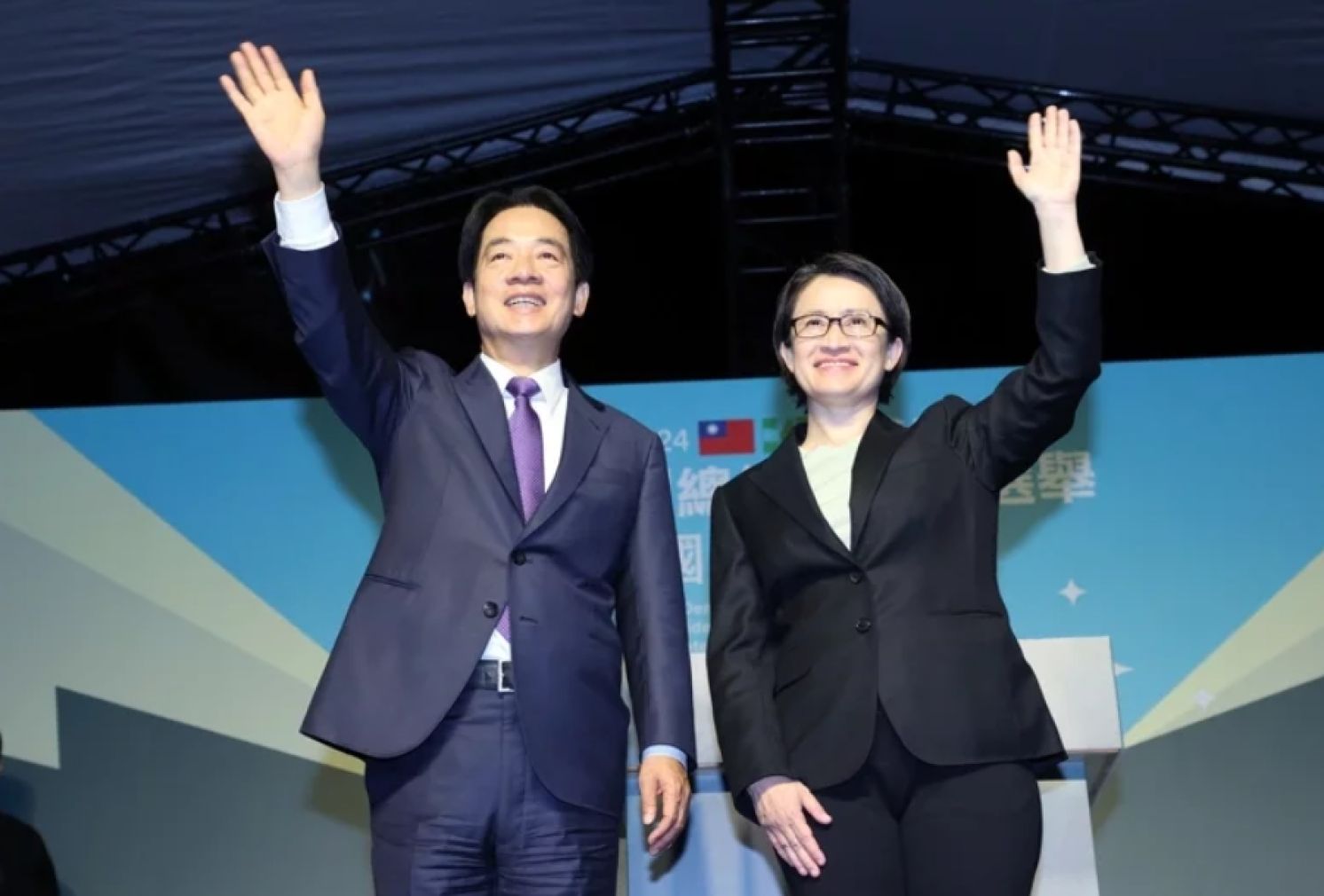
Lai Wins Presidential Election in Taiwan
Summary Report by Taiwan Weekly
Taiwan held its presidential election on January 13, and Democratic Progressive Party's (DPP) William Lai won with 5,586,019 votes, securing a 40.05 percent vote share, becoming the 16th-term president. In the parliamentary elections, no party obtained a majority, with the Kuomintang (KMT) having the most seats, followed by the DPP and the Taiwan People's Party (TPP). The DPP fell short of a majority in both the presidential and parliamentary elections, becoming a "double minority." The voter turnout was 71.86 percent, lower than the previous election's 74.9 percent.
Mr. Lai held an international press conference after winning the election, during which he used the term “R.O.C. constitutional framework" instead of the "Constitution of the Republic of China." He emphasized maintaining peace and stability in the Taiwan Strait, expressing confidence in engaging with China through dialogue and cooperation while respecting the dignity of both sides.
U.S. President Joe Biden promptly stated, "We do not support (Taiwan) independence" when asked about the Taiwan elections by a reporter at the White House.
The Taiwan Affairs Office of mainland China’s State Council responded in writing late on January 13, with spokesperson Chen Binhua stating that the election results show the DPP does not represent the mainstream Taiwanese opinion, emphasizing that Taiwan is part of China, and the election does not change the fundamental pattern and direction of cross-strait relations.
Assistant Director Bao Chengke of the Shanghai East Asia Institute observed a significant difference in Mr. Lai's statements compared to President Tsai Ing-wen's. Tsai at least acknowledged the spirit of the 1992 Hong Kong Meeting, whereas Lai did not even mention the "Act Governing Relations Between the People of the Taiwan Area and the Mainland Area." He indicated that China is unlikely to accept the term "constitutional framework," and they will closely watch if Mr. Lai intends to adjust regulations defining cross-strait relations, such as the Cross-Strait Act.
Mr. Lai mentioned three meanings of his victory: choosing democracy over authoritarianism, resisting external interference, and affirming the chosen path for the country. The European Union welcomed Taiwan's presidential election but expressed concern over increasing tensions in the Taiwan Strait, opposing any attempts to unilaterally change the status quo.
Robert Wang, a senior researcher at the Center for Strategic and International Studies (CSIS), recommended Lai to focus on long-term issues and maintain President Tsai’s cross-strait policy for regional peace and stability. Douglas Paal, former director of the American Institute in Taiwan (AIT) and expert at the Carnegie Endowment for International Peace, advised transparent communication with the U.S. and regional allies, especially before any formal announcements.
Regarding the DPP's failure to secure a parliamentary majority, Mr. Lai expressed regret in reflection, stating that he would consider opponents' policy proposals if they match the country's development needs. He thanked opponents for their democratic conduct, having received congratulatory calls from them, and looked forward to national unity.
After his defeat in the presidential election, KMT candidate Hou Yu-ih bowed to his supporters three times, expressing deep regret for not achieving a party change in leadership. He hoped that all political parties would unite to face the challenges in Taiwan after the election, addressing issues related to Taiwan Strait security and U.S.-China-Taiwan relations. He also expressed the wish for the DPP to create a government that is clean, efficient, and one that the people of Taiwan can trust.
TPP presidential candidate Ko Wen-je expressed gratitude for the recognition and support received from each vote. In the face of fierce competition between the KMT and DPP, he successfully emerged as one of the top three contenders for the first time. Considering this as a successful initial step, he believed that in the next four years, he could gain even more support and ultimately reclaim the nation.
In the previous election, President Tsai of the DPP was re-elected with 8.17 million votes and a 57.13 percent vote share. While Mr. Lai’s vote share was lower at 40%, he won in 14 out of 22 cities and counties, securing a diverse electoral landscape.
In the legislative elections, where a total of 113 seats were contested, KMT, including both district and party-list seats, obtained a total of 52 seats, becoming the largest party in the Legislative Yuan. The DPP secured 51 seats, and the Taiwan People's Party gained eight seats, all through party-list representation. The remaining two seats are won by independent legislators. None of the three major parties—KMT, DPP, and TPP—managed to achieve a majority.